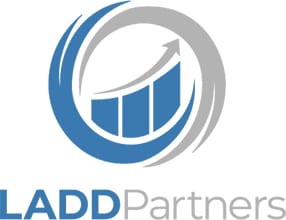
The days of making a fast buck from cannabis are ending. Or rather, one can no longer set up a small business and expect millions in investment from private equity firms to help with any expansion. The industry is maturing, private equity firms are wising up, competition is increasing, and the barriers to entry are rising. The global cannabis market is projected to grow at a CAGR of 30.7% to reach USD 39.35 billion by 2023,[2] up from USD 10.31 billion in 2018. However, it is North America, where it has evolved fastest with U.S. states legalizing sales across the country and Canada legalizing nationally in 2019.
Historically, canna-businesses were “Mom and Pop” shops focused on a local market. In recent years that has changed. Companies are expanding with multistate companies now common. One of the reasons for this is the high cost of entry—licenses to sell and distribute have always been complex to obtain and retain. Licensing is managed at the state level, so if you do business in three states, you have three licensing bodies to deal with, all with different rules. This can really push up the cost of compliance, which must be carefully managed or you can be shut down. Also, the economics of scale in a growing industry means that smaller outlets find it tough to survive. This is a story similar to small retail businesses devastated by the growth of Walmart[3].
The next generation of cannabis businesses are mature organizations
Cannabis businesses can make money, a lot of money. It is, therefore, no surprise that Private Equity firms still eye the growth opportunity. In the first three quarters of 2019, almost $2 billion was invested in cannabis start-ups by private equity firms[4]. However, after the initial high valuations, the market dropped in March 2019. There were also failures such as MedMen, once the most valuable cannabis company in the US, which lost most of its value. Private Equity firms and investors are now warier of what they invest in.
The next wave of cannabis businesses must be ready to scale and run effectively. This is already happening, according to Mike Flanagan, Director of Business Development at Ladd Partners: “The maturity of professional management in cannabis is the thing that we see pretty consistently.”
These new cannabis businesses are faced with an ever-changing landscape of challenges and risks.
Compliance challenges
Licensing
The ability to demonstrate compliance with still evolving legislation is crucial for several reasons. There are 19 different types of licensing[5] for canna-businesses which include cultivation, manufacturing, testing, retailed and distributing. Organizations need a license to operate as any of these. Losing the license can mean getting shut down. To become and remain compliant needs a mature ERP solution that can deliver compliance and auditability through standard reporting rather than complex spreadsheets.
Tax Compliance
The taxes associated with cannabis are complex and likely to worsen before they improve. Tax rates can vary based on price, weight or THC content. Each stage of the supply chain can bring different taxes at the local, state and federal level. The best solution is to have a single solution updated centrally for every jurisdiction. James Ladd, co-founder of Ladd Partners, comments: “Our application supports cultivation tax, cannabis excise tax, and local cannabis tax which the individual cities levy differently.” Even with federal legislation coming into force, Ladd believes that: “it’s not suddenly going to get cleaned up and become less complicated.”
Having a single solution to cover all parts of the supply chain also makes sense. Ladd noted: “You are strongly incented from a tax standpoint to verticalize. You are the grower, you are the distributor, and you sell to your own retail.” Having a single solution to provide functionality across the whole supply chain, with suitable audit controls is the best approach.
Metrc reporting
A third challenge is Metrc reporting. Metrc is the most commonly used regulatory system in the US. Currently, at least 16 states use it to record every cannabis transaction occurring. The details of how the data is collected and used vary between states. Organizations that automate the integration for their manufacturing, distribution and retail operations face lower compliance and audit risks. The key thing is you need to track everything in METRC for compliance, but it doesn’t tell you if you’re making any money. In order to determine profitability, you have to track it all again in your ERP system. This double entry is time consuming and error prone, so having a system that integrates with METRC to the extent allowed reduces this effort and significantly increases efficiency. Most applications track retail sales; the Ladd Partners integration does far more. Ladd noted, “We do retail sales, and we do the whole manufacturing, distribution and transfer process.” The solution also records everything in an audit table. It means that if the Metrc data transfer fails, the system can repeat or accurately report to a state auditor what occurred, along with the supporting evidence.
According to BriAnne Ramsay, CEO, Rocky Mountain Cannabis Consulting (RMCC), “Metrc is complex. Adapting a cannabis business to Metrc requires extensive training, modifying SOPs, and consistent oversight. This burden is difficult on the cannabis business because Metrc doesn’t conform to the operational flows. Implementing a software tool like Financial Force to build compliance safeguards and automation into every step in the internal supply chain is critical to a successful operation.”
Shrinkage
Shrinkage is a major issue for canna-businesses. Ninety percent of cash and inventory losses are attributable to employee theft. Tracking and stopping these losses is therefore vital.
Cash Shrinkage
To date, cannabis businesses are unable to use federal banks to store cash, even using state-wide banks and credit unions are not without challenges. Cash (vault) Management is therefore important for businesses at risk of cash shrinkage. The problem is made worse for multi-site organizations that need to collect, count and store cash. A robust financial management solution that records an audit trail for every stage of the life of cash in the business is important. It reduces the risk of shrinkage and helps to identify where that shrinkage occurs. Even if banking becomes allowed, audit controls and records will be just as important to prevent accusations of money laundering.
Inventory Shrinkage
Having a single cloud application to manage inventory across multiple locations delivers real-time visibility of all inventory across the business. It reduces the risk of inventory shrinkage but can also enable the rebalancing of stocks across an organization.
Don’t just buy software
To solve some of the challenges canna-businesses need to adopt the right applications to support their business. This is not easy. As with any gold rush, there are a lot of opportunists looking to make a quick buck in this burgeoning industry. Vendors can create software to solve some of the problems of canna-businesses quickly.
A canna-business will often acquire an inventory system, a point of sale (POS) system and an accounting system such as QuickBooks to help run the business. These will work initially, but as a business scales, there are broken handoffs between applications. Also, these applications cannot cope as additional sites are added, and the complexity of interactions between those locations increases. Compliance also becomes a major headache leading to a large number of spreadsheets to solve the shortfall. Another big challenge with Quickbooks is the lack of multi-company consolidations.
Ladd Partners believes the answer lies in adopting a solution based on the market-leading Salesforce platform. There are significant advantages to this. The combination of Salesforce CRM, FinancialForce ERP and FinancialForce Order & Inventory Management provides a sophisticated business solution. It can manage sales, operations and finance for multi-entity, multi-location businesses underpinned by a single system of record, Salesforce.
The solution starts with Salesforce, the market-leading CRM platform. Businesses can supplement that with Pardot to deliver personalized marketing around the brands that are now emerging.
The FinancialForce ERP solution, built natively on the Salesforce platform, delivers the reporting, compliance and audit functions that will give surety to business leaders and investors that the organization is well managed in financial terms. Ladd Partners has created a cannabis specific solution on the Salesforce platform, called CannabisCloud, that extends FinancialForce’s capabilities to solve unique business challenges related to the cannabis industry. It includes a deeper integration to Metrc than most other solutions for compliance reporting.
Ladd has also worked with other third parties to extend the solution to provide up to date taxation rules from TaxNexus and an integrated, on-platform POS solution from Eposly.
UpNorth, a distributor of top-shelf cannabis products, faced several challenges before adopting Ladd’s solution. Rapid growth was pushing UpNorth’s accounting and inventory systems to their breaking points and the company was experiencing data validity issues between separate applications. Other problems included a lack of real-time inventory visibility, duplicate data entry for METRC reporting, and tax miscalculations. “Ladd Partners’ cannabis-specific solution provides us with a secure, auditable, end-to-end financial management system with real-time inventory visibility, accurate tax calculations and a seamless connection to METRC,” says Katie Jones, UpNorth’s Chief Operating Officer. “Knowing that it is built on the proven Salesforce platform and will scale with our business provides peace of mind going forward.”
Another advantage of a platform such as Salesforce is that it develops functionality for a much wider audience with budgets that smaller software vendors only dream of. For example, the acquisition of Tableau brought market-leading analytics and combined with Einstein delivers Artificial Intelligence and Machine Learning functionality that is well beyond the capability of any independent vertical application. Einstein trend analysis surfaces the answers to questions that a business does not know to ask. This supports the reporting tool that provides an answer to any questions asked by a business leader.
The Salesforce platform also has higher levels of security than most other solutions. It has government level security for data, is HIPAA compliant for healthcare and is far more secure than many other canna-business solutions. It also has certifications for SOC 1, 2, and 3, PCI DSS and ISO 27001 and supports CCPA and GDPR.
Ladd combines this market-leading software with its experience of implementing solutions in the cannabis industry. It also brings industry experts such as Amaren Group and RMCC to the table to provide a complete team of experts for any cannabis business. If you want to retain and scale your cannabis business, this combination is hard to beat. Stacy Arnold, a financial expert and cannabis industry veteran with the Amaren Group sums it up nicely: “Money invested in a proper ERP system will pay you back over time through increased productivity, better visibility, business agility and a strong competitive advantage. This is crucial in an industry where the strength to survive is becoming more and more dependent on economies of scale.”
[1] https://www.lexology.com/library/detail.aspx?g=2137ce9f-36e7-4844-aab0-c35610e997a5 accessed 17 Nov 2020
[2] https://www.marketsandmarkets.com/Market-Reports/cannabis-market-201768301.html accessed 17 Nov 2020
[3] https://www.forbes.com/sites/timworstall/2013/03/31/of-course-walmart-destroys-retail-jobs-thats-the-darn-point-of-it-all/?sh=680ddd1c1069 accessed 19 Nov 2020
[4] http://www.cannabusinessadvisory.com/2020/01/15/raising-capital-in-the-cannabis-industry-fundraising-dos-and-donts/ accessed 17 Nov 2020
[5] http://cannabusinesslaw.com/2017/03/prop-64-breakdown-available-permits-and-licenses/

FinancialForce offers customer-centric business applications on the leading cloud platform from Salesforce. We accelerate business growth with the only modern ERP suite and the #1 professional services automation (PSA), enabling real-time insights and intelligent decision-making. See your customers in full color with Salesforce and FinancialForce. Founded in 2009 and headquartered in San Francisco, FinancialForce is backed by Advent International, Salesforce Ventures, and Technology Crossover Ventures. For more information, visit www.financialforce.com.

























